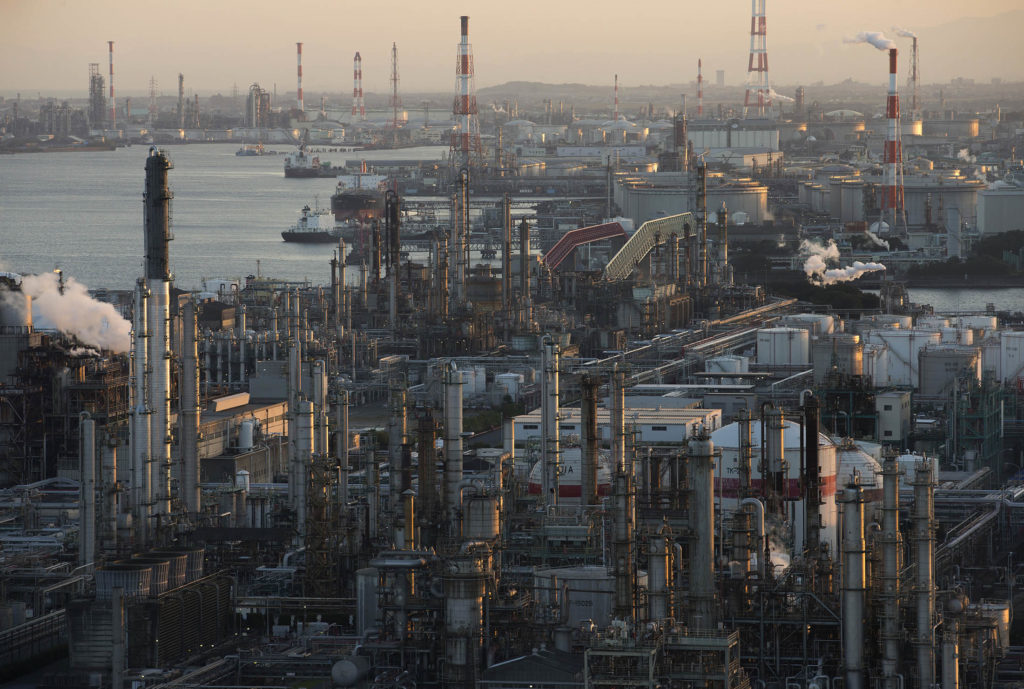
Limiting global warming to 1.5C is a “human imperative” to avoid catastrophic climate change, and is a good investment, scientists have said.
The world has already warmed by 1C above pre-industrial levels, with an increase in heatwaves, droughts, floods, and storms, and impacts on food yields and nutritional quality, a study in the journal Science said.
Changes are happening faster and more extensively than projected, the group of scientists from around the world who are behind the study warned.
With 1.5C of warming, climate impacts will lead to larger threats to both human and natural systems, and the risks in a world with 2C of warming are “much greater”, they said.
A UN report previously warned that limiting global warming to 1.5C was still possible but would take “unprecedented” action by countries and businesses to cut greenhouse gas emissions.
The new study suggests that limiting temperature rises to 1.5C would deliver significant returns, with potential economic benefits by the year 2200 at least four or five times the size of the investments needed to keep to the goal.
Lead author, Professor Ove Hoegh-Guldberg, at the University of Queensland in Australia, said: “Acting on climate change has a good return on investment when one considers the damages avoided by acting.”
Countries have agreed to curb global warming at “well below” 2C above pre-industrial levels and pursue efforts to limit it to 1.5C under the international Paris Agreement on climate change.
But current efforts and pledges put the world on a path to at least 3C of warming.
Ahead of a UN climate action summit in New York on Monday, the scientists are calling on world leaders to up their ambition to curb rising temperatures.
Prof Hoegh-Guldberg said: “Current emission reduction commitments are inadequate and risk throwing many nations into chaos and harm, with a particular vulnerability of poor peoples.
“To avoid this, we must accelerate action and tighten emission reduction targets so that they fall in line with the Paris Agreement.
“As we show, this is much less costly than suffering the impacts of 2C or more of climate change.
“Tackling climate change is a tall order. However, there is no alternative from the perspective of human well-being, and too much at stake not to act urgently on this issue.”
The researchers said there were lower risks of heat-related illness and deaths at 1.5C than at 2C and would lead to 420 million fewer people being frequently exposed to extreme heatwaves and 65 million fewer being exposed to “exceptional” heatwaves.
Human health will also be affected by changes in the distribution and abundance of diseases such as dengue fever and malaria, which are set to increase with warming of 1.5C and further at 2C.
Prof Rachel Warren from the Tyndall Centre at the University of East Anglia assessed projections of risk for areas including forests, wildlife, food and crops and found very significant benefits for limiting global warming to 1.5C rather than 2C.
Without policies to limit warming to 1.5C, “we will continue on the current upward trajectory of burning fossil fuels and continuing deforestation, which will expand the already large-scale degradation of ecosystems”, she said.
“To be honest, the overall picture is very grim unless we act,” she added.
In the paper, the scientists warn: “Aiming to limit warming to 1.5C is now a human imperative if escalating risks of dangerous, if not catastrophic tipping points and climate change hotspots are to be avoided.”
The researchers called for large scale strategies to tackle emissions such as a Green New Deal to avoid potentially catastrophic consequences over the next few decades and century.
